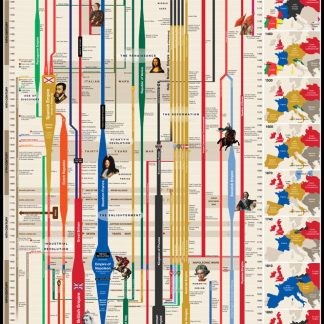Description
The Holocaust Primary Sources /emare just what teachers need to help students learn how to analyze primary sources in order to meet Common Core State Standards!Students participate in active learning by creating their own interpretations of history using historical documents. Students make observations, generate questions, organize information and ideas, think analytically, write persuasively or informatively, and cite evidence to support their opinions, hypotheses, and conclusions. Students learn how to integrate and evaluate information to deepen their understanding of historical events.The 20 Holocaust Primary Sources /emare: Photograph of German SA stormtroopers starting boycott of Jewish businesses in Berlin–signs say ;ldquo;Germans! Defend yourselves! Don’t buy from Jews!;rdquo; dash; April 1, 1933 Photograph of badge featuring the Star of David–Nazi regime forced Jews to wear it as a form of identification during Holocaust era Diary entry of Edi Weinstein–Edi escaped from Treblinka concentration camp in Poland in 1942 List of people being transported to German concentration camps–the list includes last name, first name, date of birth, city of birth, profession, marital status, age, ability to work, address, and registration number dash; 1942 Photograph of Anne Frank in 1940–Anne’s diary detailing two years of hiding from German capture during WWII was published in 1947. Cover of report to the governments of the United Nations about actions of Nazis occupying Poland–first official government alert given to wartime allies about the Holocaust dash; December 1942 Photograph of Jews captured and forcibly pulled from dugouts during the Warsaw Ghetto uprising dash; May 1943 Drawing by Stefan Kryszak, survivor of Flossenb;uuml;rg concentration camp in Germany dash; circa 1940s Photograph of Nazi guards selecting Hungarian Jews to be sent to the gas chamber at the Auschwitz-Birkenau concentration camp in Poland dash; May/June 1944 Aerial photograph of Auschwitz I concentration camp in Poland dash; August 25, 1944 Photograph of crematorium with bones visible inside–located at Buchenwald concentration camp in Germany dash; April 4, 1945 Photograph of General Eisenhower, General Bradley, General Patton, and other U.S. Army officers viewing burned remains of prisoners held at Ohrdruf concentration camp in Germany dash; April 12, 1945 Photograph of Jewish slave laborers in their bunks at Buchenwald concentration camp in Germany dash; April 16, 1945 Photograph of wedding rings removed from Holocaust victims by the Germans dash; May 5, 1945 Photograph of starving prisoners in concentration camp in Ebensee, Austria dash; May 5, 1945 Photograph of survivors at Mauthausen concentration camp in Austria cheering U.S. Army soldiers one day after actual liberation–event was recreated at General Eisenhower’s request dash; May 6, 1945 Page two of a four-page letter from Pfc. Harold Porter, a young American medic, describing the concentration camp at Dachau, Germany dash; May 7, 1945 Photograph showing grave markers for victims in W;ouml;bbelin concentration camp in Germany–people in nearby town of Ludwigslust were forced to visit the camp, bury the dead, and attend the memorial service dash; May 8, 1945 Photograph of Russian slave laborer among prisoners freed by the U.S. Army pointing out Nazi guard who brutally beat prisoners dash; May 14, 1945 Photograph of barbed wire fencing near entrance to Auschwitz I camp in Poland–wire would kill escapees with high-voltage electricity dash; photo May 2006Your students will: Think critically and analytically, interpret events, and question various perspectives of history. Participate in active learning by creating their own interpretations instead of memorizing facts and a writer’s interpretations. Integrate and evaluate information provided in diverse media formats to deepen their understanding of historical events. Create a more relevant and meaningful learning experience.span style=”color:#FF0000;”Download the Gallopade Free Online Teacher;#39;s Guide for Primary Sources PDF located in “Additional Info.”/spanAll levels. 8 x 11 inches each. Cardstock.




